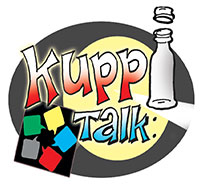An Absurd play in Parliament: Qualifications versus education
Posted on December 24th, 2024
By Kaushalya Perera Courtesy The Island


Sri Lankans love their educational qualifications. Qualifications permit envious comparisons of value, similar to the ownership of gold jewellery, an expensive watch or a branded pair of shoes, resulting in exactly the same questions of provenance, worth and authenticity, but from a much higher moral ground.
For the past two weeks we, the people, have watched as allegations that the (now) ex-Speaker’s educational qualifications were faked, proliferated across the news and social media. We waited for him to prove otherwise, all the while observing how his party and his current place of work (the Parliament) seemed to have neither the will nor the means to verify these claims. As I write, the ‘qualifications war’ has turned into an Absurd play.
Why were the ex-Speaker’s qualifications so important?
This is a two-fold problem related to the unhealthy relationship that Sri Lankans have with qualifications, coupled with NPP’s self-branding as a ‘clean’ party.
Let’s take the second part first. One of the NPP’s pledges was that they would give ‘sudussata sudusu thaena’, i.e., appropriate positions to suitable individuals. This was a constant thread of their election rhetoric and it was accepted as a counter to the rampant nepotism and cronyism we have been seeing. After the (ex) Speaker stepped down, the Prime Minister said in Parliament that her Party includes members with no certificates, as well as those with many qualifications; that all are equally valued because her party values all types of knowledge; and that knowledge cannot be understood narrowly.
I fully agree. It is the kind of vision I expect from a Minister of Education. At the same time, it cannot be denied that the NPP knowingly played the qualifications game during their long drawn-out campaign. The JVP’s image—associated in public discourse with ragging, student protests and workers’ strikes—was subsumed into the NPP’s much-vaunted membership of professionals, academics and artists.
And the reason why the ‘qualifications game’ was so effective as election currency is precisely because Sri Lankans value qualifications so highly, in such a problematic way. It provided legitimacy to the NPP’s portrayal of themselves as a party standing against a host of corrupt charlatans.
This brings us to the first part of the problem – our love of qualifications. In the education sectors, we’re all familiar with that little line: ‘A certificate will be provided’, which is included to increase participant numbers. Also familiar are instances of people registering for a specific course disappearing from the actual class and turning up at the ‘certificate-awarding ceremony’. Further, degrees are often demanded in some sectors for jobs that do not require one.
This love of qualifications is not a new phenomenon. In an interesting article, titled ‘The growth of foreign qualification suppliers in Sri Lanka’, published in 2005, Angela W. Little and Jane Evans describe the growth of the ‘qualification marketplace’ in Sri Lanka. They found that advertisements by ‘qualification-suppliers’ in three national newspapers (Sinhala, Tamil and English) grew steeply over three decades, rising from 15 qualification-suppliers in 1965 to 153 in 2000. One can only imagine what a post-2000 study would reveal!
The authors chart the rise of the qualifications industry in parallel with the economic liberalisation and economic growth that occurred post-1980. Though they did not make this link, we can connect this rise to the failure to expand higher and vocational education to a growing population and a fast-changing economy, during two decades of political upheaval. During this period, public funds for education declined, and declined even more sharply post-2000, despite large loans from international financial organisations. This is the context for both the deterioration of public education and the rise of privately-funded education, which is symbolised by the desire for a qualification, rather than an education.
Qualification versus education
Re-creating a society that values learning and education over a certificate of qualification would involve a protracted and difficult journey. It would require a few decades of high quality, widely-accessible education as well as moral re-socialisation: a simple-sounding solution, yet one that is very difficult to initiate and achieve. Indeed, it would be illogical to expect any kind of moral or ethical socialisation from an underfunded and damaged education system, embedded in a decaying society.
The fact remains that the education sector desperately needs actual physical resources. Today, while a small proportion of schools in Sri Lanka contemplate installing computer labs, other schools are deprived of the basics; school meals, electricity, running water, uniforms, chairs, desks and books. We also need more and better paid teachers, plus national regulations and explicit minimum standards for the teaching profession, regardless of whether they are in the state, private or international sectors.
A larger issue that is not discussed is that we actually do not know enough about our own education system. Our attention has for too long been focused on the state education system, resulting in a lack of attention towards other sectors, e.g., early education, private and international education. The education ecosystem in the country needs urgent study, and researchers across disciplines can contribute to this need. And while the education sector has accepted multiple donations and loans, it is not at all clear if these funds are used in a manner that best fits the purpose.
In summary, it is vitally important that the fundamentals must be fixed. But we need to also re-think the way we over-estimate the value of a qualification, as against a wholesome education.
A re-examination of values and ethics
The fact that we value qualifications rather than an education has been apparent for a long time now. The prevalence of forged certificates and honorary doctorates is not the only indicator. Long before ChatGPT arrived, newspapers and social media were advertising ghostwriting services, i.e., the writing of assignments and dissertations for a fee. This is a business that is clearly unethical and must surely be illegal, but it is now so common that both the suppliers and their clients appear to consider it perfectly normal.
We have come to value quantity over quality: two degrees simultaneously, more qualifications, promotions and rankings based on numerical criteria and so on.
Start somewhere
It is obvious that ethics socialisation has not happened through education in Sri Lanka. This is a major problem that has no simple or quick solution. When the Parliament that is supposed to be discussing the interim budget of a financially distressed country spends that time trading accusations with each other about each other’s educational qualifications; when an MP is unable to prove – even after a week – the qualifications he claims to possess and then imagines that it is sufficient to resign from his position but not from his seat in Parliament; when a party that has pledged immediate action on corruption-related issues takes several days to effect a resignation from a powerful position; and when the Prime Minister and Cabinet Spokesperson are angered when questioned about matters of veracity and authenticity – we know we still have a long way to go to re-socialise a population into ethical beliefs and conduct. It is not enough to prevent bribes and reduce wasteful spending. We also need to start looking at providing meaningful and broad-based public education, where learning and integrity go hand in hand.
(Kaushalya Perera teaches at the Department of English, University of Colombo.)
Kuppi is a politics and pedagogy happening on the margins of the lecture hall that parodies, subverts, and simultaneously reaffirms social hierarchies.